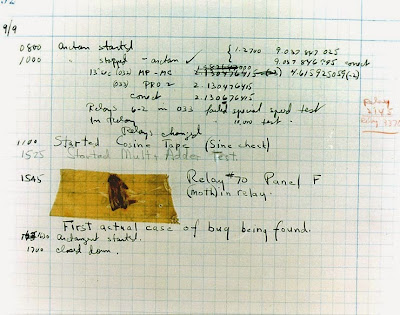I haven't posted here in a while because I have been preparing a post about what has been going on with the government healthcare website. As you should already know, it has been a disaster.
People unable to get to the site,
unable to log on,
unable to create an account. I have seen
video after
video after
video of people explaining what went wrong, and read all manner of article trying to make sense of it all. I couldn't write a succinct, clear post explaining it all.
It makes my head hurt. I'm going to try to let you know some of the underlying problems that are happening and clear up some of the confusion without turning this into a dissertation.
There are several issues contributing to the difficulties the site is having: Bad design, lack of testing, mandate of conversion to name a few.
Regarding bad design, it turns out the site is designed so poorly that it is sending far more data (
unsecured, no less!) back and forth among participants - including insurance companies, the site itself, and the users - than is necessary. For example, let's say the web page comes up and you are asked to enter your name and address. When you hit submit, it should only send that info, as well as some security and validation info as well. But it is sending much, much more. In fact, the belief now is that it is so poorly designed that major parts of it will need to be redesigned from scratch. That's right - not redeveloped or improved, but scrapped and
rebuilt from the ground up.
Next is
lack of testing. When I teach systems analysis and design, which is essentially the subject of how to develop and implement large systems, students learn about three types of tests: Desk testing, unit testing, and string testing. In desk testing, the functionality and logic of the system is tested on paper. It's an easy and inexpensive way to root out big problems and fix them efficiently. With unit testing, each function is tested individually. In other words, the ability of the system to accept user-submitted info would be tested as a standalone function, as would the ability to calculate a total or compute sales tax. With string testing, all those functions are tested together to be sure data is being passed between those functions properly. It might be discovered that while sales tax is being correctly calculated it is not being added to the total at checkout.
The point of all of this is it appears that the only type of testing that was done is unit testing. No desk or string testing at all. And for a system so dependent on so many participants and aspects, this is unforgivable.
There was also no capacity or load testing, meaning testing the system to be sure it can handle the expected traffic. Although it was assumed that millions would try to log on, it was only tested with 200 simultaneous users.
Finally, conversion. The government is notorious for forcing systems on line when they are nowhere near ready,
and it has happened again. The site had to go live on a specific date whether it was ready or not, and
it was not ready. This is one of the cardinal rules that should not be violated, but, especially with federal systems, it often is.
One other thing: This is not a commentary on the plan itself as many people try to make it out to be. It was hard to find links for this post because so many were biased one way or the other, using the site's failures to attack or defend the plan itself, but that's irrelevant, a red herring, don't fall into that trap. The failures of the system are unrelated to that regardless of your feelings of the plan itself. But the site is a huge disaster, and apparently none of the designers have ever been in my class (
or maybe they have) because these mistakes are design 101 errors. Hopefully they get it figured out soon, but I suspect it will take at least three months to get to operating speed. We'll see.

















































